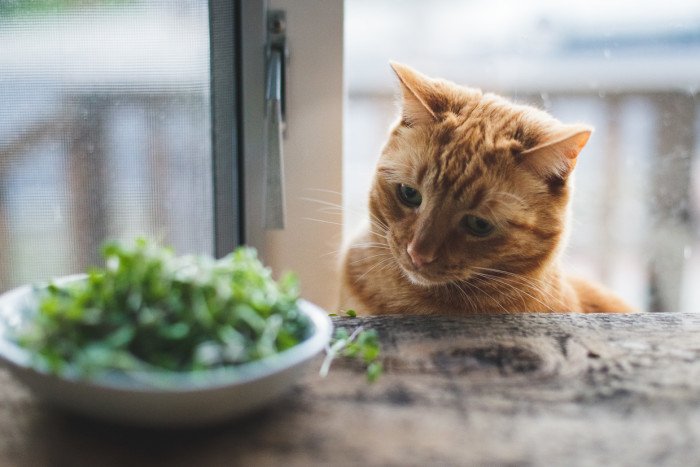Cats are indoor animals, and many families consider cats as family members and care for it very carefully and thoughtfully. If you also intend to raise a cat, you should find out in advance about the good and bad foods for it so your cat can develop well.
Good food for cats
High-protein foods
This food is made by industrial manufacturers with different types including dry grain, soft grain, and canned wet food. These foods are easy to use and don’t need to cook. Furthermore, the food has a reasonable price with a high-quality product which is calculated and prepared in a scientific formula to ensure balanced diets and high nutritional value. High-protein foods are suitable for the busy person, and you can even use an automatic feeding machine for your cat.
However, you should not feed dry grain for a cat that has tract disease or one that likes food too much.
Red meat
Red meat is very good for a cat. Therefore, you can boil beef, pork, lamb, stew, and potatoes and shredded for a cat. You can mix the meat juice with rice or grain foods for cats very well. These foods are high in protein, but you don’t use rancid meat.
Fish
Most cats love fish, so you should buy fish for your cat, but don’t feed fresh fish. You can cook fish with other foods. Fish are good for cat’s health because they are high in protein, Vitamin A, and D. Moreover, fish’s oil can prevent intestinal obstruction by furballs. However, you should know that in spite of no specific studies, if you only feed your cat fish, their diet will not be balanced; you should mix fish with other foods.
Green vegetables
Green vegetables provide fiber and vitamins and prevent problems of the cat related to the bowel wall. Also, vegetables are good for the diet of older cats or overweight cats.
It is best if you do not exceed 30% of a cat’s diet with vegetables because cats are mainly meat eaters.
Fruit provides a source of essential vitamins, but you should discuss dietary needs with a physician or include small amounts in the diet to stimulate metabolism and digestive system of animals. If you give too much fruit, however, your cat may get diarrhea – so provide with caution.
Bad food for cats
- Alcoholic beverages: Can cause poisoning, coma, and death.
- Children’s porridge with commit, or onion powder: Toxic to cats if eaten in a large quantity; onions can cause gastrointestinal discomfort, vomiting.
- Chocolate, tea, coffee or other items containing caffeine: They contain active ingredients likes caffeine, theobromine, and theophylline poisoning which will affect the operation of the cardiovascular and nervous systems of cats.
- Milk and milk products: Dairy is easy to cause diarrhea, especially with adult cats and older cats because they are especially lactose-intolerant. Milk and dairy products without lactose sugar i.e. lactose-free milk products are best.
- Rancid food, intestine, animal viscera etc.: There are many dangerous bacteria such as Escherichia coli, Staphylococcus, Streptococcus, Salmonella spp., Bacillus spp., Clostridium perfringens, Clostridium botulinum, or Penitrem, which may cause vomiting, diarrhea and nerve poisoning (a neurotoxin).
- Too sweet foods: Too much sugar causes obesity, broken teeth and may cause your cat to develop diabetes over time.
- Raw eggs: They may contain a type of yeast called avidin-biotin (a type of vitamin B) which causes fur loss. Also, raw eggs contain salmonella bacteria which may cause food poisoning.
- Potatoes and whole potatoes include petioles, leaves, stems containing oxalates may cause digestive disorders, and affect the nervous system and urology. Other types of pets are also prone to this kind of poisoning.
- Fresh or processed onions and garlic: Contain sulfoxides and disulfides can destroy red blood cells causing anemia blood-deficiency. Cats are more susceptible to poison than dogs.
- Mushrooms have toxic: May cause toxic shock, which affects the whole body, muscles, and nervous system. If severe, can be fatal.
- The supplements of minerals and vitamins containing iron (Fe): Cause toxicity, liver dysfunction and cause kidney failure in cats.













































